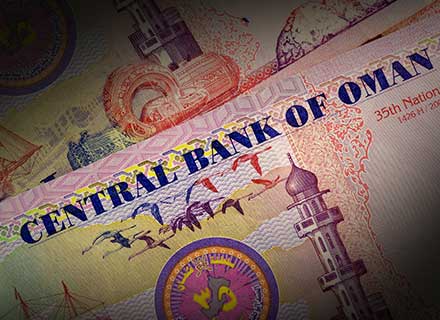Recently, Oman issued treasury bills worth 27 million rials ($70.1 million), a 0.1 per cent reduction from the previous seven days. The bills had various maturities.
The country’s Finance Ministry anticipated a budget deficit of almost 1.3 billion rials in 2023 when it issued treasury bills last week, continuing a recent trend of similar issuances.
The most recent issuances are divided into two tranches with different maturity durations, according to the central bank, which serves as the issue manager for such debt instruments.
The bank said in a statement that the bills with a value of 5 million rials are allotted for a maturity term of 28 days, with an average acceptable price of 99.66 rials, a small increase above the 99.67 rials price recorded the week prior.
The remaining bills have a 91-day maturity period and are worth 22 million rials. According to the bank, the minimum accepted price for this issuance was 98.71 rials, while the average accepted price was 98.74 for every 100 rials.
According to a press statement, “The average yield and discount rate hit 5.05202 per cent and 5.11649 per cent, respectively.”
The bank continued, “It should be noted that the repo operations interest rate with CBO is 6% while the discount rate with CBO on the treasury bills discounting facility is 6.5%.”
The CBO hiked its repo rate for regional banks at a similar rate to 6 per cent in response to the US Federal Reserve’s move to increase its main policy rate by 25 basis points last week.
According to the central bank, maintaining and sustaining its fixed exchange rate is the goal of its monetary policy.
The structure and character of the Omani economy are in line with this approach. The Omani rial’s stability, the reduction of capital outflow, and the promotion of investor certainty by eliminating exchange rate risk are only a few benefits that the Sultanate derives from this strategy, the bank said last week.
Treasury bills are issued by the central bank to support the local money market by establishing a benchmark yield curve for short-term interest rates. They are widely regarded as low-risk and safe investments.
According to the bank, “The government may also use this instrument whenever thought essential for financing its ongoing expenditures.”

